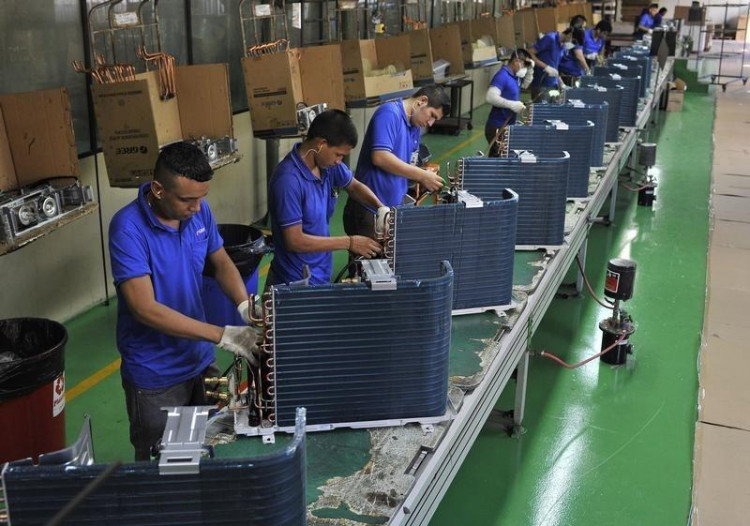Shares of Chinese air-conditioner maker Gree Electric Appliance jumped by as much as 5.35 percent on Tuesday following news of a massive ownership shake-up. The company's shares rose when one of its controlling shareholders signed an equity transfer agreement to sell 15 percent of its stake in the company to a third-party investment firm.
Gree Electric Appliance's shared surged to $8.64 per piece when stock trading resumed on Tuesday. The surge was a direct result of news published a day prior indicating Zhuhai Gree Group Co Ltd's intention of transferring its 15 percent stake in Gree Electric to Zhuhai Mingjun Investment Partnership, an investment firm funded by Hillhouse Capital.
According to a recently submitted notice from Zhuhai Gree Group Co Ltd, which was posted on the Shenzhen Stock Exchange on Monday, Zhuhai Mingjun has agreed to purchase the 15 percent stake for $6.56 per shares in a deal worth around $5.91 billion. When the deal pushes through, Hillhouse Capital will effectively become Gree Electric's largest shareholder.
The transfer of the shares will also result in there being no controlling shareholder or actual controller of Gree Electric, which has been seen as good news by investors. The change in equity essentially shuffles the current top three holders, excluding the Shenzhen-Hong Kong Stock Connect.
The top three shareholders are namely Zhuhai Mingjun with a 15 percent stake, Hebei Jingjhai Guarantee Investment Co Ltd with an 8.91 percent stake in the company, and Zhuhai Gree Group with its remaining 3.22 percent stake.
Gree Electric, formerly known as Zhuhai City Haili Cooling Engineering Company Limited, was originally founded in 1989. The company initially produced air conditioning units for household and commercial use but it has since then expanded to produce other household appliances such as electric fans, heaters, rice cookers, humidifiers, and other products. Now, Gree Electric is considered to be the world's largest residential air-conditioner manufacturer in the world.
Analysts have stated that the diversification of the company's shareholders would likely result in it having a better ability to deal with issues such as problems with its governance structure and its management of equity incentives. These problems have mostly suppressed the company's market valuation.
The shareholder shakeup is expected to long-term stability to Gree Electric's management and operations, likely increasing dividend rates. Investors are well aware of this possibility, which is evident in the rise in the company's stocks. Gree Electric is also reportedly looking into joint shareholding by company management, core leaders, and current stakeholders to strengthen its channels.





